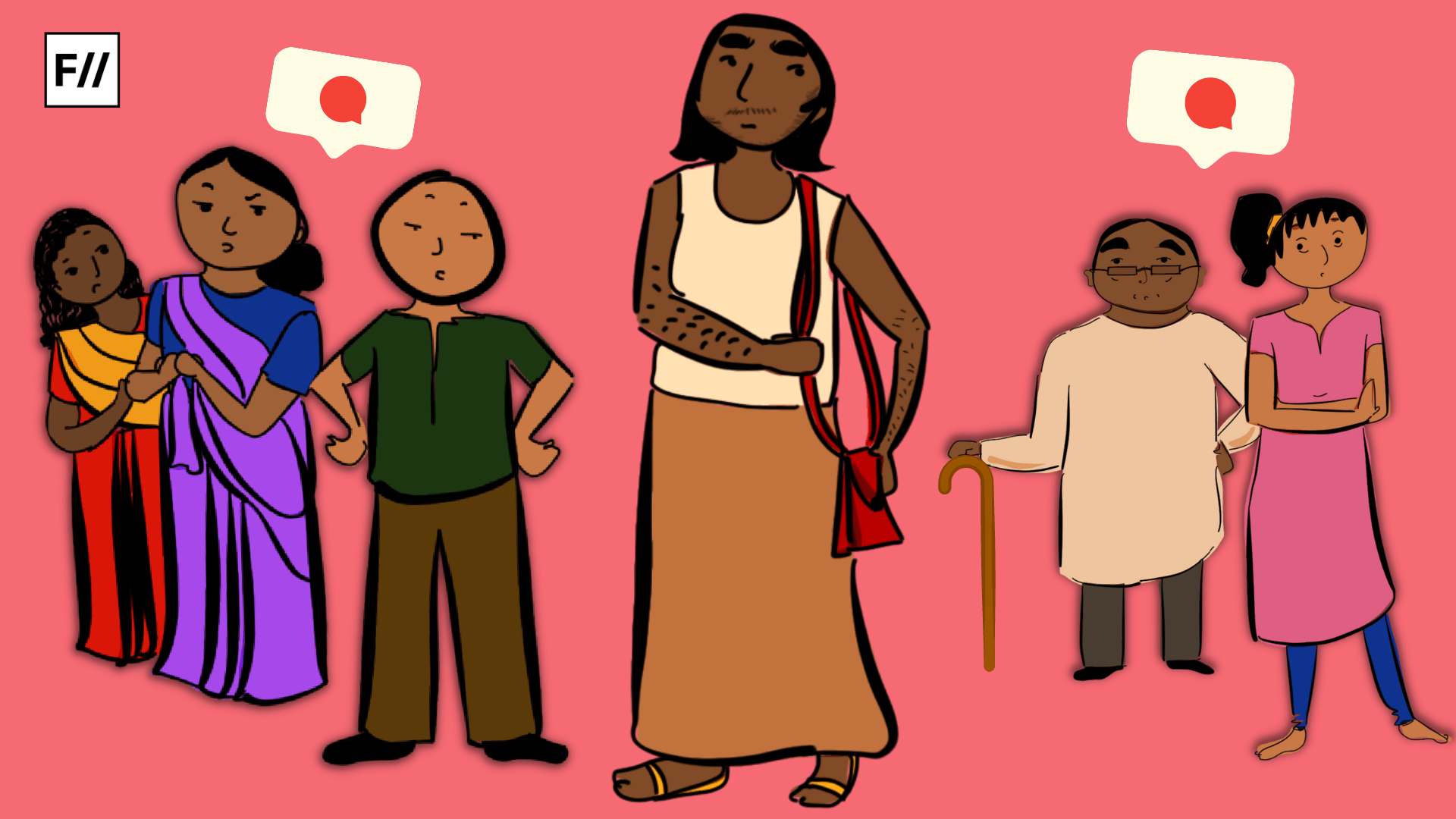It is common for almost every woman to have been called ‘too much’ or ‘too less’ at least once in their lifetime. As they say, you are either too much for someone when they cannot handle you, or too less for them when they think they deserve more. At other times, when you cannot fit into just one label, you could very well be both! While it may not logically make sense to you, it is perfectly meaningful for those who have given you this tag.
Now, the key to winning in life is to find balance, and being a woman is all about this search for balance. Being a woman is hard and dealing with society as a woman is even more challenging. However, the hardest part comes along when you have to deal with yourself, being the woman that you are.
Somehow, whatever you perceive yourself as, is never at par with how the world perceives you and shall never be. You could either be a disappointment or an overachiever, but you can never really face yourself with a perception that is not created by society. So, you might often find yourself questioning what it is that you perceive yourself as, away from the mandates of the society.

A woman somehow has always been looked at in polar extremes: she is either the Madonna or the whore, the popular or the mysterious, the cool girl or the boring one. It is as though, women cannot exist beyond this polarity and their character has to always be generalised under these labels.
For example, anytime you encounter a guy on a date, they might either be expecting you to look “all-natural” and then complain about why you do not put on makeup. If the situation is reversed and you do put on a full face of make-up, you might find your date complaining about how you are “too artificial” with your looks. In the end, you hit the spectrum of “too much” or “too less”.
As a woman, even when you are not opinionated, you come off as “easy” or “shallow”. This is also considered unattractive to the male gaze and once labeled as such, it stays forever. It becomes an effort for the women belonging to the other extreme of “too less” to prove a point that they are, in fact, not shallow as perceived. Who must women prove themselves to? To the ones who tag them, or is this an endeavour to prove it to themselves?
A good second example can be the comment boxes of social media handles. In today’s era of Facebook warriors and Instagram educators, comment sections are an excellent place to label women. If you have slightly expressed your opinion on feminism, may God save you from the keyboard smashes that shall come in your way.
It takes no time for people to label a woman expressing feminist views as ‘Feminazi’. Despite its existence not bothering any English dictionary, this urban slang exists on the internet and very rigidly in people’s minds.
Even at friendly or family gatherings, women are judged by their speech at almost every step. If you are a woman, you must have consciously thought about how to greet an older relative and how that should be different from how you greet people usually.
No matter what you say, you have to be “likable” to your relatives, or you might be deemed as introverted, snobbish, or “the silent type”.
Also read: A Comprehensive Manifesto On Being A Good, Likeable Feminist

In any case, however, you have to abide by whatever other people say to not come off as arrogant or “too opinionated”. Opinions, are a huge problem for most families, especially if you are a girl from a brown one.
Opinions are equated with disrespect towards elders when it is only a proposal to show one’s disagreement. Girls with opinions are often dismissed as being “too much” as they are perceived to be too rebellious, naggy, and argumentative.
As a woman, even when you are not opinionated, you come off as “easy” or “shallow”. This is also considered unattractive to the male gaze and once labeled as such, it stays forever. It becomes an effort for the women belonging to the other extreme of “too less” to prove a point that they are, in fact, not shallow as perceived.
It is, as though, men and society have a manifesto that could almost “save” women from talking too much, dressing too much, laughing too much, or even living too much beyond what their lives are expected to be
Who must women prove themselves to? To the ones who tag them, or is this an endeavour to prove it to themselves?
From dealing with emotions like anger, sadness, joy, or jealousy, women have to constantly live through a battle of balancing the two extremes of the spectrum. Nobody likes an unattentive and emotionless woman. Yet, crying or cussing could be way “too much”.
Even the physicality of women cannot escape this scrutiny. Gaining weight can always make them “fat” and losing it makes them “skinny”. In other cases, while popularity can be full of perks, everybody finds mystery attractive.

It is, as though, men and society have a manifesto that could almost “save” women from talking too much, dressing too much, laughing too much, or even living too much beyond what their lives are expected to be.
It could also be the other way round where women are too less than what is expected. The “excess” and the “absence” which can somehow neither be seen, nor felt by women, never cease to be felt by the ones who point fingers.
In the end, it does not even matter what you do or don’t. If you are wearing flowers on your hair, they shall suggest you twear leaves. Perception changes in every instance and as a woman, you shall always be subjected to being too much or too less no matter whatever you do.
So why bother to choose a balance in this socially constructed spectrum when you can be both, or whatever else you want?
Also read: ‘Does Being A Feminist Mean I Cannot Enjoy Jokes?’: Responding To Sexist Humour While Being Feminist
About the author(s)
Mrittika is a student of English. She is usually found expressing her love for art through words and music. At other times she is most likely traveling around the town trying new delicacies and imagining her life as a Greta Gerwig movie





It is women who judge other women, compete with each other in looks, and are hostile for no apparent reason other than jealousy. It is women who demean other women and make inappropriate comments.